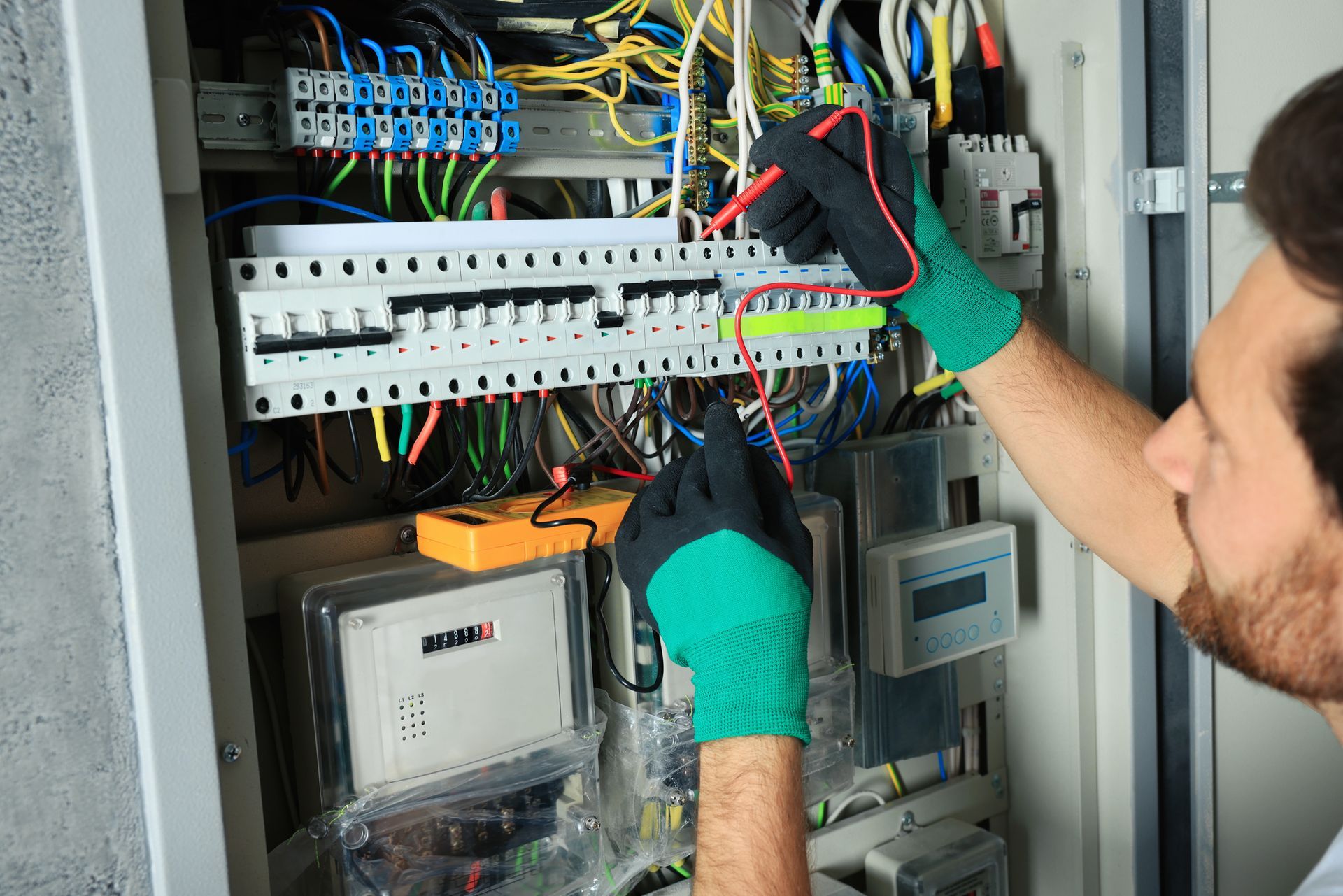Why Does Your Circuit Breaker Keep Tripping?
A circuit breaker is a safety mechanism designed to protect your home and its wiring system from overcurrent. This component shuts off the electrical current when it senses a surge or overload. As indispensable as this electrical component is, it can be frustrating when it keeps tripping and cutting off your electricity. The issue may interrupt your activities or even cause major downtime in business.
Read on to learn about the possible culprits of this problem. By understanding why your circuit breaker keeps tripping, you can take steps to prevent future problems from occurring and protect your property from any potential electrical hazards.
Short Circuit
A short circuit happens when the neutral and live wires come into contact. This issue causes a sudden surge of electricity that can overload the circuit and trip the breaker.
A short circuit can happen in your wiring due to loose or damaged wires. Also, the issue may originate from a switch, an outlet, or an appliance connected to the circuit. For example, if the circuit breaker trips when you plug something into a specific outlet, the issue will likely come from that outlet.
Overloaded Circuit
An overloaded circuit has more wattage or amps running through it than the breaker can handle. This problem happens when you plug too many devices into the same circuit. An overloaded circuit causes the wiring to overheat and, in severe cases, may cause a fire because each circuit is designed to handle a specific load. When you exceed that limit, the breaker will trip.
Luckily, a circuit overload is easy to spot. If the circuit breaker trips each time you plug something in, the problem is likely an overload.
Ground Fault Surge
A ground fault surge happens when a hot wire touches the ground or any other conductive material, creating a potential fire hazard. Ground fault surges may result from poorly insulated or damaged wiring. Things get more hazardous if the ground fault is a result of water, which increases the chances of an electric surge.
The secret to preventing ground fault surge is to install a ground fault circuit interrupter, a special type of breaker that cuts off power when it senses an imbalance.
Arc Faults and Power Surges
An arc fault is a hazardous electrical problem resulting from stressed, damaged, or overheated wiring. For example, if your wiring system is old, the wires may be cracked or frayed, putting your property at risk of an electrical fire. Similarly, power surges are sudden spikes in voltage that can damage your electronics and appliances. The problem usually happens after a power blackout or during storms.
Install an arc fault circuit interrupter to protect your property from arc faults and power surges. This component senses any arc faults and shuts off the power before it can cause any damage. Also, install a surge protector to protect your electronics from power surges.
Faulty Circuit Breaker
Sometimes, a circuit breaker that trips often may mean a damaged circuit breaker. In such a case, let an electrician inspect the component for signs of damage and replace it if necessary.
These are some potential reasons why your circuit breaker keeps tripping. No matter what the cause is, take immediate action to prevent potential fire hazards. Also, don't attempt to do the repair yourself if you don't have any experience with electrical work. Instead, hire a qualified electrician to inspect and repair the issues.
You can trust us at Beckstoffer-Welsh Inc. for all your commercial and residential electrical needs. Our electricians are experienced and certified to the highest industry standards. You can count on us to inspect, diagnose the root cause of circuit breaker tripping, and offer the most feasible solutions. Contact us today for a consultation.















